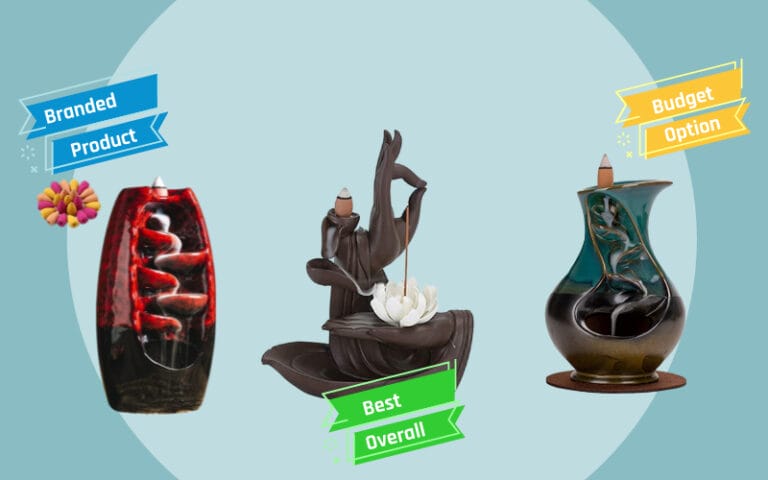6 Profound Zen Stories on Humility | Lessons for Personal Growth
No doubt the wisdom Zen Buddhism offers is a great way to nurture humility as a virtue that surpasses cultural boundaries to remain relevant in modern living.
By storytelling, Zen masters bestowed timeless lessons challenging ego-driven tendencies and Also works as reminders of the transformative power to cultivate a humble mindset.
In this article, we will shed light on 6 Zen stories which depict true humility, inviting us to reflect on our own paths to personal growth and spiritual awakening.
Learning through fables and stories can be enjoyable and effective.
As with many other religions of the world, Zen Buddhism uses fables and legends to teach various concepts.
From my research, I have observed that Zen stories are highly beloved by readers of all faiths, including Buddhists and non-Buddhists.
However, it can be challenging to organize these stories by subject. That is what I am attempting to do here. In this episode, I will be sharing some Zen stories that focus on humility.
01. The Story of Zen Master and the Prime Minister

There was a strong bond of trust and respect between a Prime Minister of the Tang Dynasty and a Zen master. Despite the Prime Minister’s high rank and influence, he always treated the Zen master with deference.
One day, the Prime Minister asked the Zen master about the definition of egotism in Buddhist teachings. However, the Zen master became angry and sharply rebuked the Prime Minister, saying, “That’s a foolish question.”
The Prime Minister was embarrassed and offended by the Zen master’s response and became angry. But the Zen master merely smiled and said, “Your Highness, this is an example of egotism according to Buddhism.”
Hearing these words, the Prime Minister recognized his mistake and apologized to the Zen master.
Lessons to learn: True humility is demonstrated by maintaining humility even in difficult situations.
02. Empty Your Cup

A scholar once visited a Zen master in order to learn about Zen Buddhism. The Zen master was happy to share his knowledge, but the scholar kept interrupting him with his own opinions. It became clear that the scholar was more interested in expressing himself than in listening to the Zen master.
As a result, the Zen master stopped speaking and began preparing tea for the scholar. While pouring the tea into the scholar’s cup, the Zen master continued to pour even when the cup was full, causing the tea to spill over the sides.
The scholar was puzzled and asked the Zen master why he was doing this. The Zen master explained, “Just like this cup, your mind is already full of your own thoughts and ideas. In order to truly understand my teachings, you must first empty your mind of these preconceptions.”
Lessons to learn: It is important to approach other’s opinions with an open mind. If we insist on thinking that our own ideas are always superior, we will be unable to recognize the value in others’ ideas.
03. Wash Your Bowl
A monk told Joshu: “I have just entered the monastery. Please teach me. ”
Joshu asked: “Have you eaten your rice porridge?”
The monk replied: “I have eaten.”
Joshu said: “Then you had better wash your bowl.”
At that moment the monk was enlightened.
Lessons to learn: This story may be brief, but it contains a deep analysis of the essence of true humility.
True greatness does not come from seeking to use or depend on others for one’s own gain. A person who has attained enlightenment is able to handle their own responsibilities independently, and as a result, they are humble in their personal lives.
04. The Wise Sage and the Arrogant Rat
One day, a sage witnessed a crow dropping a rat from its beak to the ground. He quickly rescued the rat and helped it recover.
A few days later, the sage saw the rat being chased by a cat. By this time, the rat had become a pet to the sage.
The sage did not want the rat to be harmed, so he used a magic spell to turn the rat into a cat so that it could protect itself from other cats.
However, soon after, a dog began harassing the cat. In order to protect the cat, the sage turned it into a dog.
But this solution was not permanent, as a tiger came into the area and began chasing the dog. In order to save the dog, the sage turned it into a tiger.
While the tiger was now safe from harm, it still did not find peace of mind.
Everyone in the area knew the sage and his tiger, and even though the rat was now in the guise of a tiger, everyone still treated it as a rat. The rat, however, saw itself as a tiger and wanted to be treated as such by everyone else.
It realized that as long as the sage was alive, the villagers would remember the tiger’s past as a rat and continue to treat it as such. Therefore, the rat plotted to kill the sage.
But the sage was wise and could see the rat’s true intentions. He immediately turned it back into a rat and said, “It is important for everyone, no matter their size, to remain grateful and humble for what they have. Otherwise, they will surely fall.”
Lessons to learn: When ambition outweighs humility, it can lead to one’s downfall.
05. Right and Wrong
This story illustrates the humility of Bankei Yōtaku, a Japanese Rinzai Zen master.
Some of his students approached him and reported that a student had been caught stealing. All of the students demanded that the thief be expelled. However, Bankei ignored their request.
A few days later, the same student was caught stealing again. Once again, Bankei ignored the students’ demands for expulsion.
This time, the students presented a petition stating that if the accused thief was not expelled, they would leave Bankei’s school.
Upon hearing about the petition, the Zen master called a meeting with all of the students.
He said, “You are all wise brothers, able to distinguish right from wrong. If you wish to study elsewhere, you may do so. But this poor fellow does not yet understand right from wrong. Who will teach him if not me? I will keep him here even if all of you decide to leave.”
Upon hearing this, the accused student broke down in tears and promised to never steal again.
Lessons to learn: Often, a simple act of humility can accomplish more than strict actions.
06. Zen Bow, Zen Arrow

There was a group of students practicing archery one day, and a Zen Master noticed that one student was consistently missing their targets.
The Zen Master commented, “It is his desire to win that is sapping his strength.”
Lessons to learn: Competition can lead to a depletion of strength. It is better for both the body and mind to approach most situations with humility and tolerance.
FAQs:
Q: What is the significance of using stories and fables in Zen Buddhism?
A: Without any doubt in Zen Buddhism, these stories work as powerful tools for teaching and conveying valuable lessons and insights in a simple manner. Moreover, such tales containing multiple meanings can perfectly resonate to the people from different demographics, promoting self reflection and spreading zen teachings.
Q: Why is humility considered an important virtue in Zen Buddhism?
A: Humility is highly valued in Zen Buddhism as it is seen as a prerequisite for personal growth and enlightenment. A humble mind is open to learning, free from the limitations of ego and preconceptions, and better able to perceive the true nature of reality.
Humility is closely tied to the Buddhist principles of non-attachment, letting go of ego, and recognizing the interconnectedness of all beings. Cultivating humility helps individuals overcome the limitations of the ego, develop a more profound understanding of reality, and foster compassion, empathy, and a deeper appreciation for the experiences and perspectives of others.
Q: Can you explain the significance of the “Empty Your Cup” story?
A: The “Empty Your Cup” story emphasizes having an open mindset and a hunger for knowledge. It taught that if someone already has enough assumptions of superiority then there will be no accommodation for new teachings and perspectives.
The art of new learning requires modesty and determination to bypass ego and other predetermined ideas. Other than self reflection this story also teaches us to cope up with situations having an open mind that’s free from our own biases and assumptions.
Q: How can practicing humility benefit one’s personal and spiritual growth?
A: Humility practice would enhance your personal, spiritual growth in multiple ways. It allows us to tackle challenges with an open mind, learning from our mistakes, as well as determining our limitations. Humility develops a sense of appreciation, compassion, and insight into others, leading to meaningful connections and understanding of the interconnectedness of all beings.
Parting Thoughts
In sum, the zen stories told above are a sort of gentle reminder highlighting the importance of being humble everyday. The teachings from these stories assists in;
- Personal Growth
- Built Deeper connections with others
- Greater Connection with universe
If humility is practiced, it gets us out of the limitations of ego, tackling situations with an open mind, and a smooth journey toward wisdom. Such stories engage us on a lifelong journey of Self discovery, leading to greater peace, compassion, and fulfillment.







I’m really glad to see that someone has compiled a list of the best Buddhist stories on humility.
Most of these stories were new to me.
It’s been a good reminder to me to think about how I live my life. So thank you!
Thank you for taking the time to read and share your thoughts.
I’m glad to hear that these stories have prompted a reminder of things we can do in order to live with more humility… which, BTW, is something we all need to work on!
Yes Humility is so rare and lacking. I hope and pray to be more humble in all I do. Thank you so very much.
Thanks Samantha for your comment. Yes, humility is a virtue which is difficult to master, but when you do master it, it is the most amazing feeling in the world. It’s like finding a cool, calm place in the middle of desert. In the middle of the world’s most competitive and cut-throat business environment, it gives you a great strength to carry on.
I would say, it’s more of a wisdom than a virtue. It’s not about you. If you are humble, you understand that no matter how good you are, you will never be able to do everything yourself. You always need people to help you. You understand your weaknesses and you reach out to others to take advantage of their strength. Humility begins with self-awareness.
Best,
Saidur
Dear Mr. SaiduIr Rahman,
This is Sandra. I am an elementary school English teacher. I love the story “Empty Your Cup” very much. Could I use your “Empty your cup” story to teach children the value of humility? I will list your name, website address, add Chinese translation to the article and use it only on campus.
Thank you so much!
Sandra
Hi Sandra, thanks for stopping by. This is Robert from Budding Buddhist, answering on behalf of Saidur. Yes, you are most welcome to refer to this article and use it for educational purposes, as you mentioned.